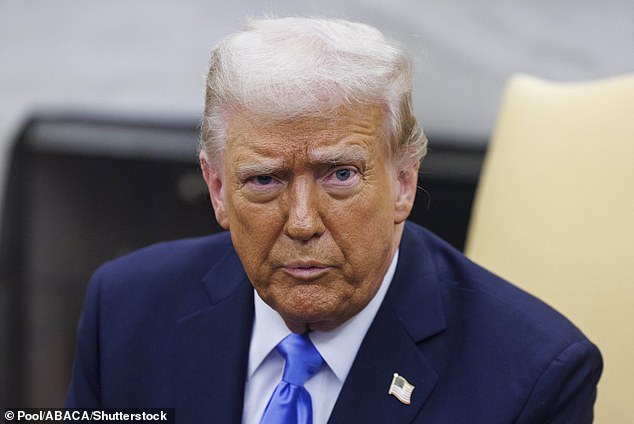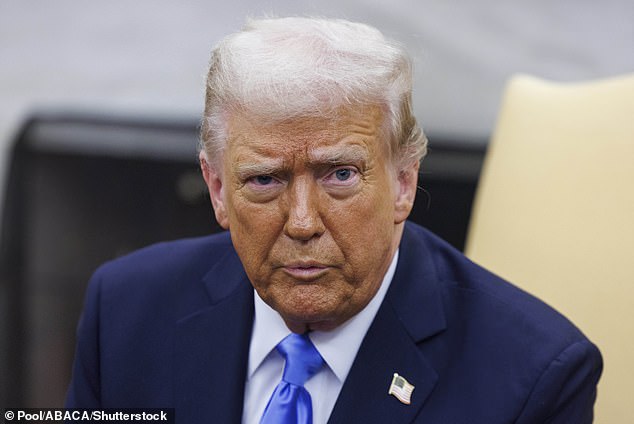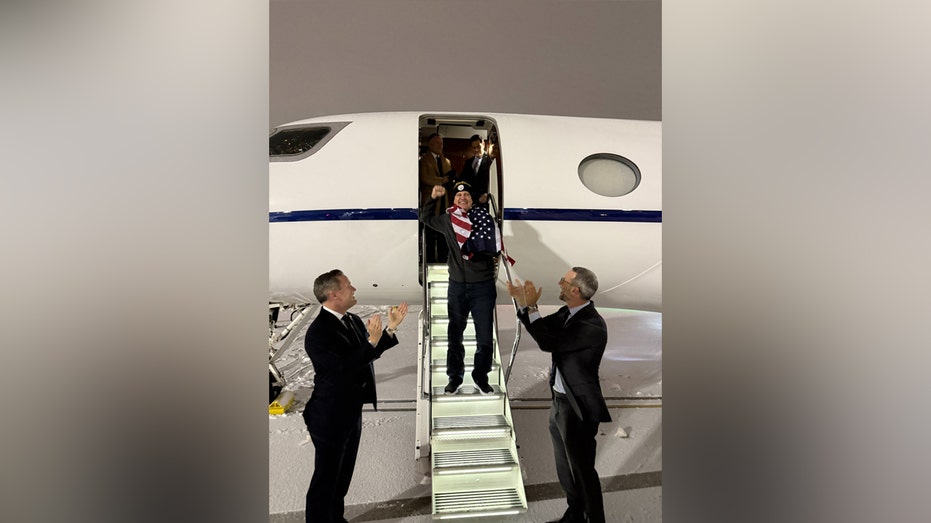
American Teacher Marc Fogel Returns to U.S. After Release from Russia
In a significant diplomatic breakthrough, Marc Fogel, an American teacher who had been detained in Russia for over two years, returned to the United States on Tuesday. His release marks both a personal victory for Fogel and a notable achievement for U.S. diplomatic efforts amid escalating tensions between the two nations.
Background of Detention
Fogel, a history teacher who worked at the Anglo-American School in Moscow, faced severe repercussions following his arrest at a Russian airport in August 2021. He was charged with drug possession, a serious allegation in the Russian legal system, leading to a 14-year prison sentence. His family maintained that the substance found in his possession was medically prescribed marijuana, intended for personal use, adding a layer of complexity to an already fraught legal situation.
The case drew international attention, raising concerns among human rights advocates and highlighting the often harsh penalties associated with drug-related offenses in Russia. Fogel’s family, alongside various supporters, campaigned vigorously for his release, arguing that his detention was not only unjust but a reflection of the larger geopolitical climate between the U.S. and Russia.
Diplomatic Negotiations and Release
After months of diplomatic negotiations, Fogel’s release became possible when U.S. officials successfully brokered a deal with the Russian government. While specifics of the negotiations remain undisclosed, U.S. national security advisor Michael Waltz confirmed that the agreement was reached in the wake of ongoing discussions between the two nations.
Former President Donald Trump, who played a crucial role in advocating for Fogel’s release, celebrated the successful outcome. Upon Fogel’s arrival in the U.S., he was greeted with elation, a moment captured in a photograph shared on social media by the White House. In the image, Fogel is seen smiling, raising his fist triumphantly, and wrapped in an American flag, signifying both personal and national pride.
Fogel’s Emotional Return and Gratitude
Upon landing on U.S. soil, Fogel wasted no time expressing his gratitude to those who supported him during his ordeal. He met with former President Trump at the White House, where he lavished praise on the diplomatic efforts that secured his release. “I want you to know that I am not a hero at all. And President Trump is a hero,” he stated during the meeting, emphasizing the work of various officials behind the scenes.
Fogel described himself as “the luckiest man on Earth right now” and acknowledged the sacrifices made by many. “The men from the diplomatic service are heroes. The senators and representatives who pushed for my release – they are heroes,” he added, highlighting the collective effort that contributed to his return.
Family Reaction and New Beginnings
The emotional toll of Fogel’s lengthy detention was felt profoundly by his family. In a statement following his release, they expressed overwhelming gratitude for the effort that led to their loved one’s return. “We are beyond grateful, relieved, and overwhelmed that after more than three years of detention, our father, husband, and son, Marc Fogel, is finally coming home,” the family stated.
Describing the ordeal as “the darkest and most painful period of our lives,” they noted that his return would allow them to begin to heal. The family’s statement underscored the resilience and support that had sustained them through such difficult times, emphasizing the importance of community and the power of diplomacy. “Thanks to the unwavering leadership of President Trump, Marc will soon be back on American soil, free where he belongs,” they stated, their relief palpable and touching.
The Broader Implications of Fogel’s Case
The case of Marc Fogel is set against a backdrop of deteriorating U.S.-Russia relations, characterized by a series of high-profile detentions and geopolitical conflicts. President Trump’s administration had previously sought to improve relations with Russia, a goal complicated by domestic and international pressures.
As analysts weigh the implications of his release, questions remain about the potential changes in diplomatic strategies moving forward. Fogel’s case could serve as a precedent, illustrating the lengths to which the U.S. is willing to go to secure the release of its citizens, even amid rising tensions with Russia.
While the specific terms of the deal that led to Fogel’s release are largely undisclosed, the fact that negotiations can yield results provides a glimmer of hope for other detained Americans abroad. This event reaffirms the importance of diplomatic channels, highlighting how they can serve as a lifeline for citizens caught in precarious situations overseas.
Conclusion
As Marc Fogel begins to reintegrate into life in the U.S., his story serves as a reminder of the complexities of international relations, the resilience of the human spirit, and the significance of advocacy. For him and his family, the future appears brighter, filled with the promise of healing and the joy of reunification. His return not only represents a personal victory but also illustrates the ongoing dialogue between the U.S. and Russia—a dialogue that, albeit fraught with challenges, can lead to resolutions worth celebrating.
(The Associated Press contributed to this report.)


















